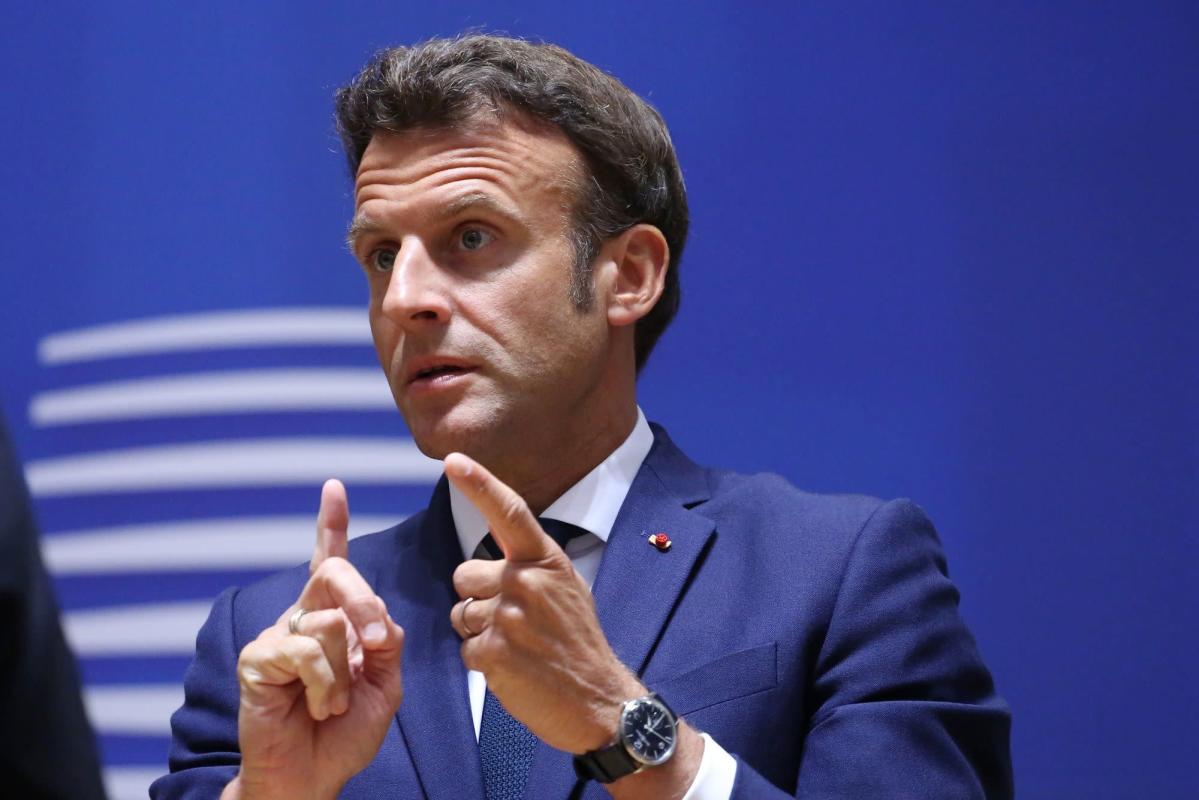
(Bloomberg) — French voters begin the process of electing a parliament Sunday in a two-stage ballot that will determine how much power recently re-elected President Emmanuel Macron will actually have. If polls are right, he should maintain control, perhaps only barely.
Most Read from Bloomberg
The latest surveys suggest Macron’s renamed party, Renaissance, and its allies should remain the largest bloc in the 577-seat parliament. But just like his margin of victory narrowed sharply in April’s presidential election from his result five years ago, Macron’s majority in the National Assembly is also projected to shrink or may even disappear.
At 5 p.m., participation in the election stood at 39.4%, down from 40.8% at the same time during the previous poll five years ago, according to the the Interior Ministry.
An absolute majority would allow Macron to push through his postponed plan to raise the retirement age, lower taxes and push ahead on his “green” transition plans. If he falls short, the government would often be forced to pick up extra votes to pass laws, either by forming a coalition with another party or by pulling in votes on a case-by-case basis. That scenario would, at minimum, require concessions, and forming a coalition could mean giving ministerial positions to rival parties to cement cooperation.
“It would be complicated” if Macron fails to get an outright majority, said Mathieu Gallard, research director for Ipsos France. “French political leaders aren’t at all used to the idea of making compromises.”
The 44-year-old Macron, a centrist, acknowledged after winning a second term that many voters backed him to keep his far-right rival Marine Le Pen out rather than because of their enthusiasm for his platform. Since then, the far left has emerged as his biggest challenger as several parties coalesced around Jean-Luc Melenchon, the head of France Unbowed.
An average of projections by four polls released earlier this week show Macron’s party and its allies getting between 268 and 310 seats once the second-round votes are counted on June 19, well below the 350 seats he won in the 2017 election. At least 289 seats are needed for an outright majority in the National Assembly.
Presidential Power
In practice in France, the president has most of the power when his party and its allies also holds a majority in parliament, since he (and so far it’s always been a he) can choose the prime minister he wishes and fire that person at will.
But the prime minister and the government he or she forms must have the support of parliament. If another political group were to get a majority, Macron would be forced to pick a premier with sharply different policies and loyalties, greatly curtailing his power. That situation, called “cohabitation,” has occurred three times since the 1980s, though not for the past two decades.
Macron, who promised a ‘new method’ in governing France in his campaign, picked Elisabeth Borne as his new prime minister last month. While Borne is only the second female to hold that post in French history, a series of holdover ministers from his prior administration suggest that the changes may be more in style than substance.
Given polling predictions, it’s unlikely that Macron would be forced into a cohabitation with an opponent as prime minister, but more than a third of people surveyed by Ipsos this month said they expect Macron to be forced to get the support of the center-right Republicans party in order to govern.
Polls opened at 8 a.m. Paris time and booths will close between 6 p.m. and 8 p.m. depending on the district.
Even after Sunday’s results it may still be hard to tell whether Macron will end up with an outright majority.
Two-Round System
Under the complex two-round system, any candidate with support from more than 12.5% of registered voters goes through to a runoff, which means the participation rate matters. The system usually leads to hundreds of two-person runoffs, some second-round contests with three candidates vying for a single slot and a few cases in which a candidate wins from the get-go. In 2017, just 4 seats were settled in the first round.
After the second round, the left-wing group called Nupes, a coalition of Communists, Greens and France Unbowed, is projected to have the second-most seats, between 163 and 207, according to the poll average. The far-right National Rally is expected to get 21 to 49 seats while the Republicans are projected to pull in 38 to 52 seats.
(Updates with participation at 5 p.m. in third paragraph.)
Most Read from Bloomberg Businessweek
©2022 Bloomberg L.P.




